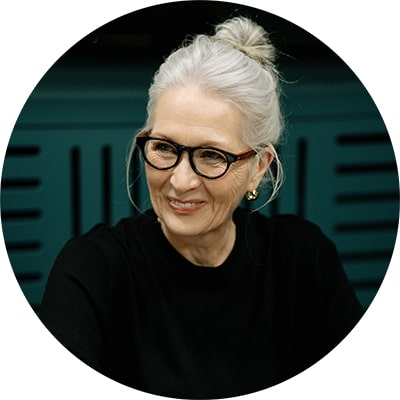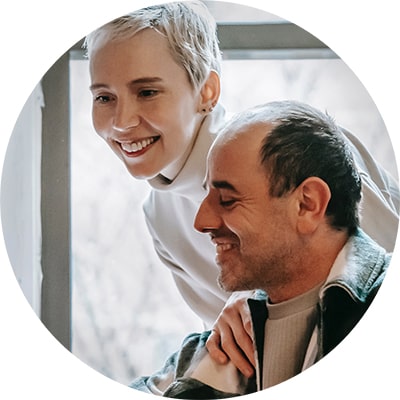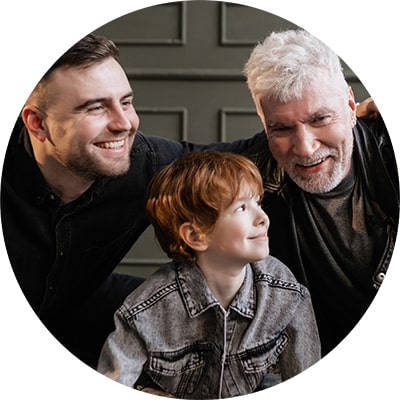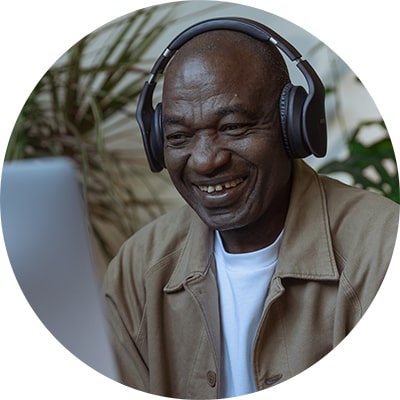Our Clients
We are often asked about our ideal client. We think the question, in part, stems from a fear of what costs may possibly be involved. There is a common misconception out there that financial planning is something reserved solely for the wealthy, but that is not the case here at Grace Lane.
Our fee structure has been specifically set up in a way that means anyone can be a client, no matter your level of wealth. We offer both a fee-only option, and fee-based for assets under management. So there is something here for everyone. And to make our services even more accessible, our planning fee can be paid monthly, quarterly, semi-annually, or annually.
More important to us than the money, is your perspective about the planning. We work with individuals or families who are excited about having a plan, look to us for ideas, and are motivated to follow the prescription. It is so rewarding and enjoyable for us to team up with folks like that.
Who we do our best work with
Most of our clients are normal, hard-working people who are looking for long-term help and accountability. They are either in or nearing retirement and need guidance in distribution planning, or are individuals or families still in the accumulation phase with good financial habits and cash flow.
Our clients are receptive to professional advice and serious about financial success. They are trustworthy, reputable, ethical people wanting to get honest advice and make the most of the money they have now in order to live well, in the moment.
One thing our clients all have in common is they came to us ready and willing to make a change. They are done with putting their heads in the sand and hoping that it all works out. We cannot tell you how many times we have seen someone lift their head and face the ugly for a little while, and then everything gets better. Our clients do the work, they stay the course, and they reap the rewards.


Dreamers wanting to squeeze every drop out of life
David and Sarah retired in their early 60s after David survived a significant cancer scare, and have now been retired for almost a decade. David was an executive for a large company and Sarah was an insurance agent when she wasn’t raising children and managing the household. They accumulated well but their greatest asset is a very unique deferred compensation plan designed for high level executives.
David and Sarah traveled extensively for the first few years, checking off the items on their bucket list with a vengeance. Then they moved back to their hometown in Kansas to help care for aging parents and bought an RV. They began seeing North America while spending a lot of quality time with their family. At our last meeting, without explanation, David began pitching an idea for freeing up cash flow and, after we didn’t immediately jump on board, he became a little frustrated. He looked to the ceiling, trying not to cry, and said:
“Look, I’m about to turn 69. I have maybe ten good years left, maybe. We have been enjoying the RV but we really miss our boat. I have seven grandchildren now and only two of them have ever been on a boat with me. I want to take them to the Caribbean and teach them all to sail. I really want to do that. And, there is something about waking up every morning with the sea in your nose and a view of the water. That’s all I can think about. Isn’t that what you do? Help your clients live their dreams?”
Yes, yes it is.

Single again or widowed and trying to find her way
Rachel is in her late 70s. She came to us looking for help about five years ago having already been managing on her own for over a decade. Her greatest concern was outliving her assets. Rachel lives a simple but active life. She has children, a large friendship group, and is very involved at her synagogue. She is extremely well read and is quick to grasp even the most complex financial concepts.
Though she had been researching for several years, Rachel found so many conflicting voices that she couldn’t feel sure she was doing the right things. We were excited to present her distribution plan, and felt confident that she was going to love it. But she did not. She could not get comfortable with it. She had questions that lead to questions that lead to questions. She said, “I know that I should just trust that you know what is best. I need to trust you, but I have just been alone for so long.”
We explained to Rachel that she was right not to trust us. Instead, she should fully understand and believe in the strategies we set in place for her, or we should go a different route. We went over her plan again and why we felt it was so well aligned with her life and her goals. Eventually she did get comfortable and we implemented our outline. At each meeting for the first several years, we revisited her distribution plan and explained all of the parts once again.
Rachel was very nervous, but we did our best to comfort and support her. We recently completed her 5th annual plan review and today she feels entirely different about things. She understands and can actually explain her distribution plan. It was gratifying to hear her say, “I am so happy. I am no longer worried about not having enough money.”

Desiring a fee-only engagement and managing their own investments
Claudia and Jorge are a successful couple with two children. They both earn extremely high incomes in return for highly demanding work; Claudia as a CPA, and Jorge as a portfolio manager. They are a few years away from an empty nest and work hard and live well. They have been accumulating fast but without well-defined goals. It is their nature to continue to work hard and save, save, save. But a voice keeps lurking that asks, “What is it for?”
The demands of their work make Claudia and Jorge worry that health issues might arise and prevent them from having a moment to truly enjoy their success. They want a plan that includes an ultra-early transition to retirement and extreme generosity with their children, while continuing to live a very good life. They want a plan and assistance with making wise and confident decisions that will lead them to that end.

Survivors of life’s difficulties wondering how to get back on track
Ben and Damon are a couple in their 40s and 50s who have had their heads down raising their family and working through difficult life circumstances, including a child with special needs. They have done their best to manage the crisis of the moment for many years. Now they are looking up at a new crisis, “What will we do when we’re older?”
Ben and Damon have very little to show for all their years of hard work. They have been in denial of their predicament for several years but are now ready to face the music. The process of developing goals and exploring their lives is tearful. They have not taken a moment to consider what they want out of life since they were children.
They are coming to terms with the reality of their financial position, but they are refreshed from the process and feeling relieved in knowing that they have a plan and a team in their corner that will help keep them on track.

A great steward of wealth facing the next chapter with conflicting goals
Charles is well into his retirement. He is originally from Europe but worked much of his adult life in the energy industry while living in Texas. He is brilliant, very analytical, and very frugal. He has accumulated very well, in large part due to his frugality. Due to this, Charles appears to have quite a bit more money socked away than he is comfortable leaving behind.
There is much talk about how much you need to accumulate in order for a successful retirement. But that is only part of the equation. The answer is, ‘It depends.’ It depends on how much you intend to spend. For Charles, his expectation for spending is extremely low in relation to the amount he has amassed. The cash flow projections, which include conservative return expectations, indicate that his asset base will continue to grow at a fairly steep clip for all of his retirement years.
Charles would rather give to his family while he is living so that he can enjoy watching them benefit from his wealth. But it does not bring him joy to spend his money. In fact, quite the opposite. We try to understand how his life experiences have affected his relationship with money so that we might offer creative ideas that will help him use his wealth in a way that brings him joy.